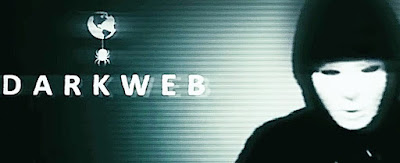The dark web is a part of the internet that is not indexed
by traditional search engines and can only be accessed through specialized
software. It is often associated with illegal activities, such as drug
trafficking and cybercrime, but it can also have potential benefits for privacy
and freedom of speech.
One of the main advantages of the dark web is its anonymity.
Users can access it without revealing their identity, which can protect them
from surveillance and censorship. This can be particularly useful for people
living in countries with oppressive governments that restrict access to certain
websites or monitor online activities.
Moreover, the dark web provides a platform for
whistleblowers to expose corruption or wrongdoing without fear of retribution.
It allows them to share sensitive information without revealing their identity,
which can protect them from retaliation.
Another benefit of the dark web is its ability to facilitate
encrypted communication. Users can exchange messages without the risk of
interception or monitoring by third parties. This can be useful for
journalists, activists, and others who need to communicate securely.
However, there are also drawbacks to the dark web. One of
the main concerns is its association with illegal activities. The anonymity of
the dark web can be used to conduct illegal activities, such as drug
trafficking, human trafficking, and weapons sales. This can have serious
consequences for society, and it is difficult for law enforcement agencies to
monitor and regulate these activities.
Moreover, the anonymity of the dark web can also provide
cover for hate speech, harassment, and other forms of online abuse. The lack of
accountability can embolden some users to engage in harmful behaviors that they
would not engage in if their identity were known.
Another potential drawback of the dark web is the lack of
quality control. Since it is not regulated, there is no guarantee that the
information or products available on the dark web are accurate, safe, or
reliable. This can pose risks for users who rely on the information or products
available on the dark web.
In conclusion, the dark web can offer potential benefits for
privacy and freedom of speech, particularly for those living in oppressive
regimes or those who need to communicate securely. However, it also poses
serious risks and challenges, particularly with regard to illegal activities,
hate speech, and the lack of quality control. As with any technology, it is
important to weigh the potential benefits and drawbacks of the dark web before
deciding to use it.
- #DarkWebPrivacy
- #AnonymityMatters
- #SecureCommunication
- #WhistleblowerProtection
- #CensorshipResistance
- #FreedomOfSpeech
- #IllegalActivities
- #OnlineAbuse
- #AccountabilityMatters
- #RegulationDebate
- #QualityControlIssues
- #OppressiveGovernments
- #SurveillanceState
- #ProtectingYourIdentity
- #RiskManagement
- #InternetFreedom
- #CybercrimeConundrum
- #BalanceOfPower
- #DigitalPrivacy
- #PrivacyVsSecurity

